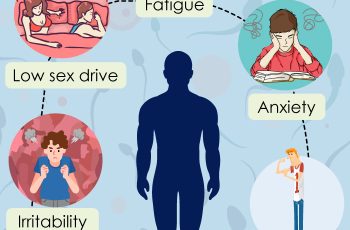Ad Blocker Detected
Our website is made possible by displaying online advertisements to our visitors. Please consider supporting us by disabling your ad blocker.
Boosting testosterone levels naturally is a topic that has intrigued many. With the quest for improved vitality and enhanced physical performance, individuals often wonder if it is indeed attainable. This article delves into the possibilities of naturally increasing testosterone levels, offering insights and potential methods that can be easily incorporated into your daily routine. Whether you’re looking to enhance your athletic abilities, improve your mood, or simply optimize your health, discovering the answers to this intriguing question could prove invaluable.

This image is property of images.pexels.com.
What is testosterone?
Definition and function of testosterone
Testosterone is a hormone that plays a crucial role in the development and maintenance of male reproductive tissues and characteristics. It is produced primarily in the testicles and is also present, although in smaller amounts, in women’s ovaries. Testosterone is a type of androgen, which is a group of hormones responsible for the development of male characteristics.
The primary function of testosterone is to stimulate the growth and development of male reproductive tissues, such as the prostate and testes. It is also important for the development of secondary sexual characteristics, including facial and body hair growth, deepening of the voice, and muscle mass development. Testosterone also plays a role in regulating libido, bone density, and red blood cell production.
Factors affecting testosterone levels
Age
As men age, their testosterone levels naturally decline. This decline usually begins around the age of 30 and continues gradually over time. By the time a man reaches his 70s or 80s, his testosterone levels may be significantly lower than they were in his younger years.
Lifestyle and diet
Your lifestyle and diet can have a significant impact on your testosterone levels. A poor diet that lacks essential nutrients, such as zinc and vitamin D, can contribute to low testosterone levels. Similarly, consuming excessive amounts of processed foods and added sugars can lead to weight gain, which can also negatively affect testosterone production.
Exercise and physical activity
Regular exercise and physical activity can help maintain healthy testosterone levels. Studies have shown that engaging in both cardiovascular exercise and strength training can stimulate testosterone production. High-intensity interval training (HIIT) has also been shown to be particularly effective in increasing testosterone levels.
Stress levels
Chronic stress can have a negative impact on testosterone production. When you are stressed, your body releases cortisol, a hormone that can interfere with testosterone production. Finding ways to manage and reduce stress, such as through mindfulness practices or engaging in stress-reducing activities, can help maintain optimal testosterone levels.
Sleep patterns
Sleep is essential for overall health, including hormone production. Poor sleep quality or insufficient sleep can disrupt hormonal balance, including testosterone production. Establishing a consistent sleep schedule and practicing good sleep hygiene can help optimize testosterone levels.
Body composition
Body fat percentage can influence testosterone levels. Obesity or carrying excess body fat can lead to lower testosterone levels. On the other hand, having a healthy body composition with a lower percentage of body fat can help maintain optimal testosterone production.
Medical conditions
Certain medical conditions can affect testosterone levels. For example, conditions such as hypogonadism, diabetes, and obesity can all contribute to low testosterone levels. If you suspect you have an underlying medical condition impacting your testosterone levels, it is important to consult with a healthcare professional for proper diagnosis and treatment.
Medications and substances
Some medications and substances can interfere with testosterone production. For example, opioids, steroids, and certain medications used to treat prostate cancer can decrease testosterone levels. If you are taking any medications that may impact testosterone production, it is important to discuss potential side effects with your healthcare provider.

This image is property of images.pexels.com.
Signs and symptoms of low testosterone
Decreased libido
One of the most common signs of low testosterone is a decrease in sex drive or libido. Testosterone plays a key role in stimulating sexual desire, and when levels are low, it can lead to a reduced interest in sexual activity.
Erectile dysfunction
Low testosterone can also contribute to difficulties achieving or maintaining an erection, known as erectile dysfunction. Testosterone plays a role in the processes involved in achieving an erection, including blood flow and nerve signals.
Reduced muscle mass and strength
Testosterone is closely linked to muscle development and strength. Low testosterone levels can result in a loss of muscle mass and reduced strength, making it more difficult to perform physical tasks or engage in exercise.
Increased body fat
Low testosterone can contribute to an increase in body fat, particularly around the abdomen. This can lead to an overall decrease in muscle tone and an increase in body weight.
Mood changes and depression
Testosterone plays a role in regulating mood and mental well-being. When testosterone levels are low, it can contribute to mood swings, irritability, and even depressive symptoms.
Fatigue and low energy levels
Low testosterone can also result in feelings of fatigue and low energy levels. Testosterone helps regulate energy production in the body, and when levels are low, it can lead to a decrease in overall energy.
Methods to naturally increase testosterone levels
Optimize diet and nutrition
Eating a balanced diet rich in essential nutrients can support healthy testosterone production. Include a variety of foods such as lean proteins, fruits and vegetables, healthy fats, and whole grains. Make sure to consume adequate amounts of zinc, magnesium, and vitamin D, as these nutrients are particularly important for testosterone synthesis.
Engage in regular exercise and strength training
Regular physical activity, including both cardiovascular exercise and strength training, can naturally increase testosterone levels. Aim for at least 150 minutes of moderate-intensity aerobic exercise per week and incorporate strength training exercises to maintain muscle mass and stimulate testosterone production.
Maintain a healthy weight
Maintaining a healthy weight is important for optimizing testosterone levels. Excess body fat can contribute to lower testosterone levels, so incorporating healthy eating habits and regular exercise can help achieve and maintain a healthy weight.
Reduce stress levels
Chronic stress can negatively impact testosterone production. Engage in stress-reducing activities such as meditation, deep breathing exercises, and hobbies to help lower stress levels and promote healthy hormone balance.
Improve sleep quality and duration
Prioritize sleep and ensure you are getting enough quality sleep each night. Establish a consistent sleep schedule, create a conducive sleep environment, and practice good sleep hygiene to optimize testosterone levels.
Ensure healthy levels of vitamin D
Vitamin D deficiency has been associated with low testosterone levels. Spend time outdoors, expose your skin to sunlight, and consider taking a vitamin D supplement if necessary to ensure adequate levels.
Consume enough zinc and magnesium
Zinc and magnesium are essential nutrients for testosterone production. Include foods rich in these minerals, such as oysters, lean meats, nuts, seeds, dark chocolate, and leafy green vegetables, in your diet or consider supplementation if needed.
Include essential fatty acids in diet
Healthy fats, such as those found in avocados, nuts, and fatty fish like salmon, can support optimal testosterone production. Include these foods in your diet to ensure you are getting enough essential fatty acids.
Avoid excessive alcohol consumption
Excessive alcohol consumption can negatively impact testosterone production. Limit your alcohol intake and practice moderation to maintain healthy testosterone levels.
Consider natural supplements
Certain natural supplements have been shown to support healthy testosterone production. However, it is important to consult with a healthcare professional before starting any supplements to ensure they are safe and appropriate for your individual needs.

This image is property of images.pexels.com.
Diet and nutrition for testosterone production
Consume an adequate amount of calories
To support testosterone production, it is important to consume an adequate amount of calories. Severely restricting calories can lead to lowered testosterone levels. However, it is important to strike a balance and avoid excessive caloric intake, as obesity can negatively impact testosterone production.
Include enough protein in your diet
Protein is essential for muscle growth and repair, and it also plays a role in testosterone production. Include lean sources of protein such as chicken, fish, tofu, and legumes in your diet to support optimal testosterone levels.
Include healthy fats
Healthy fats are necessary for hormone production, including testosterone. Include sources of healthy fats such as avocados, olive oil, nuts, and seeds in your diet to support testosterone production.
Eat a variety of fruits and vegetables
Fruits and vegetables provide essential nutrients and antioxidants that support overall health and hormone balance. Aim to eat a variety of colorful fruits and vegetables to support testosterone production.
Avoid processed foods and added sugars
Processed foods and added sugars can contribute to weight gain, which can negatively affect testosterone production. Opt for whole, unprocessed foods whenever possible and limit your consumption of foods high in added sugars.
Consider testosterone-boosting foods
Certain foods have been associated with supporting healthy testosterone levels. These include foods such as oysters, lean meats, eggs, broccoli, spinach, and pomegranate. While these foods may have some potential benefits for testosterone production, it is important to maintain a balanced diet overall.
Exercise and strength training
Cardiovascular exercise
Engaging in regular cardiovascular exercise, such as running, swimming, or cycling, can have a positive impact on testosterone levels. Aim for at least 150 minutes of moderate-intensity aerobic exercise each week.
Resistance training
Incorporating resistance training into your exercise routine can stimulate testosterone production. Lift weights, use resistance bands, or perform bodyweight exercises to help build and maintain muscle mass.
Compound exercises
Compound exercises, which involve multiple muscle groups, can be particularly effective for stimulating testosterone production. Exercises such as squats, deadlifts, bench press, and pull-ups are examples of compound movements that can boost testosterone levels.
High-intensity interval training (HIIT)
HIIT involves alternating high-intensity exercise with periods of rest or lower-intensity exercise. HIIT has been shown to have a positive impact on testosterone levels. Incorporate HIIT workouts into your routine to reap these benefits.
Optimal frequency and duration
To maximize testosterone production through exercise, aim for a balance between consistency and recovery. Engage in regular exercise sessions, but also allow for sufficient rest and recovery to avoid overtraining, which can have a negative impact on testosterone levels.
Maintaining a healthy weight
Importance of body fat percentage
Maintaining a healthy body weight and body fat percentage is crucial for optimal testosterone production. Excess body fat can increase estrogen levels and lower testosterone levels. Strive to achieve and maintain a body fat percentage within the healthy range for your age and gender.
Balancing caloric intake and expenditure
To maintain a healthy weight, it is important to balance caloric intake and expenditure. Consume an appropriate number of calories to support your energy needs and engage in regular physical activity to promote calorie burning.
Strategies to achieve and maintain a healthy weight
Adopting healthy eating habits, such as consuming a balanced diet and practicing portion control, can help achieve and maintain a healthy weight. Additionally, regular exercise and physical activity are essential for weight management and supporting testosterone production.
Stress reduction and management
Identify and address sources of stress
Identifying and addressing the sources of stress in your life is an important step in reducing its impact on testosterone levels. Reflect on your daily life and identify any potential stressors, then take steps to address them or find healthy coping mechanisms.
Engage in stress-reducing activities
Engaging in activities that help reduce stress can have a positive impact on testosterone levels. Find activities that you enjoy and that help you relax, such as reading, spending time in nature, engaging in hobbies, or practicing mindfulness and meditation.
Practice relaxation techniques
Relaxation techniques, such as deep breathing exercises, progressive muscle relaxation, and guided imagery, can help reduce stress and promote a sense of calm. Incorporate these techniques into your daily routine to support healthy testosterone levels.
Ensure sufficient downtime and leisure activities
Making time for relaxation and leisure activities is important for reducing stress and promoting overall well-being. Schedule regular downtime and engage in activities that bring you joy to help reduce stress levels and support optimal testosterone production.
Sleep optimization
Importance of quality sleep
Quality sleep is essential for hormone production and overall health. During sleep, the body repairs and regenerates, and hormone levels, including testosterone, are regulated. Getting enough high-quality sleep is crucial for maintaining optimal testosterone levels.
Establish a consistent sleep schedule
Establishing a consistent sleep schedule can help regulate your body’s internal clock and promote healthy sleep patterns. Go to bed and wake up at the same time each day, even on weekends, to support healthy hormone balance.
Create a conducive sleep environment
Create a sleep environment that is dark, quiet, and comfortable. Minimize noise and light disturbances, use blackout curtains or eye masks if necessary, and ensure your mattress and bedding are comfortable and supportive.
Practice good sleep hygiene
Good sleep hygiene habits can help promote quality sleep. Avoid caffeine and stimulating activities close to bedtime, create a relaxing bedtime routine, and limit electronic devices in the bedroom to promote restful sleep.
Manage sleep disorders or disturbances
If you have sleep disorders or disturbances, such as sleep apnea or insomnia, it is important to seek appropriate treatment. These conditions can disrupt sleep patterns and negatively impact testosterone production. Speak with a healthcare professional to address any sleep-related concerns.
What Are Some Natural Ways to Increase Testosterone Levels in Men?
There are several natural ways for men to consider when it comes to rebuilding testosterone levels naturally. Some key methods include incorporating regular exercise, maintaining a healthy diet rich in nutrients and protein, managing stress levels, getting enough sleep, and taking specific herbs or supplements known to boost testosterone levels.
Natural supplements for testosterone support
Herbs and botanicals
Certain herbs and botanicals have been used traditionally to support healthy testosterone levels. Examples include ashwagandha, tribulus terrestris, and fenugreek. However, it is important to note that scientific evidence supporting their effectiveness is limited, and it is best to consult with a healthcare professional before taking any herbal supplements.
Mineral supplements
Minerals such as zinc and magnesium are important for testosterone production. If your diet is lacking in these minerals, consider taking a supplement to ensure adequate intake. However, it is important to consult with a healthcare professional to determine the appropriate dosage and ensure it is safe for you.
Vitamin supplements
Certain vitamins, such as vitamin D, have been associated with healthy testosterone levels. If you have low vitamin D levels, supplementation may be recommended. Again, it is important to consult with a healthcare professional for guidance on dosage and suitability.
Testosterone-boosting blends
There are various testosterone-boosting blends available in the market that claim to naturally support testosterone production. These products often contain a combination of herbs, minerals, and vitamins. Before using any testosterone-boosting blend, it is crucial to consult with a healthcare professional to ensure they are safe and appropriate for your individual needs.
Importance of consulting a healthcare professional
While there are natural supplements that may support testosterone production, it is important to consult with a healthcare professional before starting any supplementation. They can assess your individual needs, address any potential underlying conditions, and provide guidance on the appropriate supplements and dosages to consider.
In conclusion, it is possible to naturally increase testosterone levels by making lifestyle changes and adopting healthy habits. By optimizing your diet and nutrition, engaging in regular exercise and strength training, maintaining a healthy weight, reducing stress levels, improving sleep quality and duration, and considering natural supplements under the guidance of a healthcare professional, you can support healthy testosterone production and overall well-being. Remember, it is important to consult with a healthcare professional for personalized advice and guidance based on your specific needs and circumstances.



